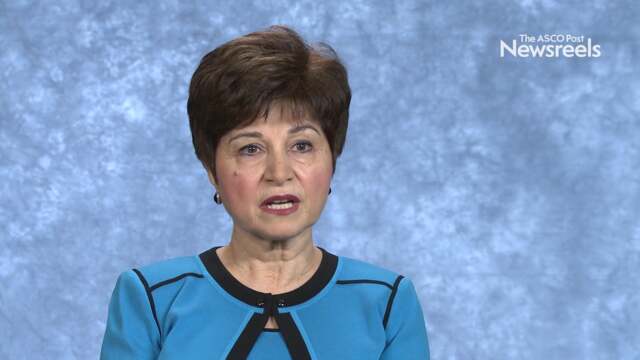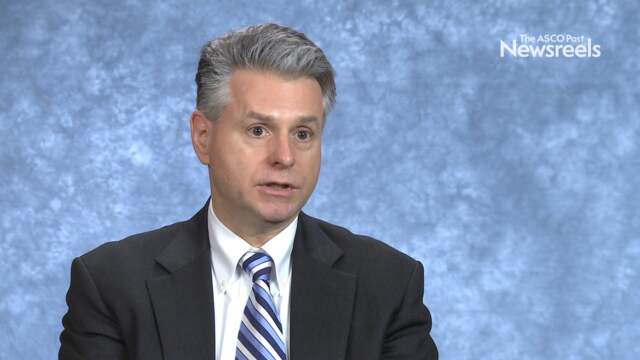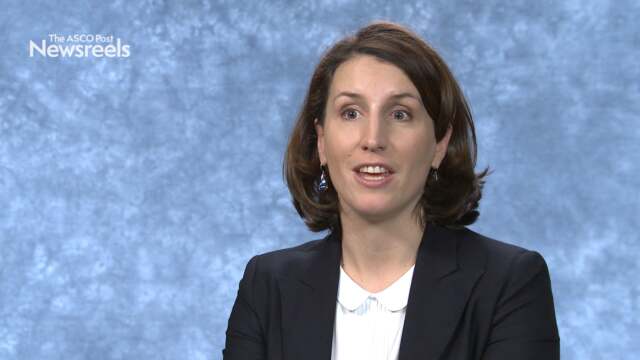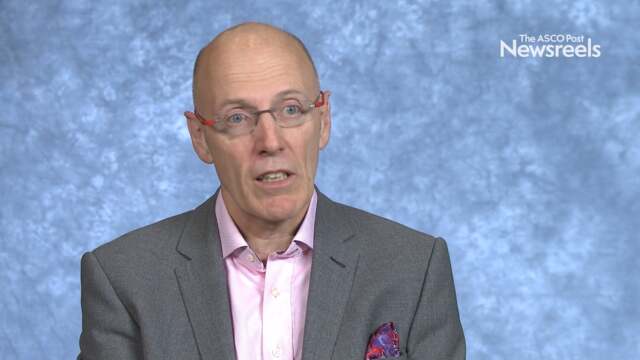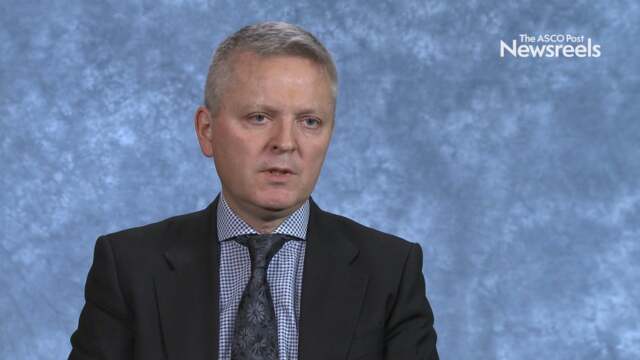Daniel J. George, MD, on RCC: Study Results on Adjuvant Treatment
2018 Genitourinary Cancers Symposium
Daniel J. George, MD, of Duke University Medical Center, discusses phase III findings on adjuvant sunitinib in patients with high-risk renal cell carcinoma, in an exploratory pharmacogenomic analysis (Abstract 576).
Maha Hussain, MD, of Northwestern University, discusses phase III findings on enzalutamide in men with nonmetastatic castration-resistant prostate cancer (Abstract 3).
John J. Coen, MD, of 21st Century Oncology, discusses phase II study findings on selective bladder preservation with twice-daily radiation plus fluorouracil/cisplatin or daily radiation plus gemcitabine for patients with muscle-invasive bladder cancer (Abstract 408).
Laurence Albiges, MD, PhD, of the Gustave Roussy Cancer Centre, discusses study findings on the safety and efficacy of nivolumab in metastatic renal cell carcinoma (Abstract 577).
Nicholas D. James, MBBS, PhD, of University Hospitals Birmingham NHS Foundation Trust, discusses study findings on the addition of docetaxel to first-line hormone therapy in prostate cancer, an analysis focusing on cost-effectiveness and long-term and quality-adjusted survival (Abstract 162).
Patrick Schöffski, MD, MPH, of Catholic University Leuven, discusses findings on the effect of crizotinib on disease control in patients with advanced papillary renal cell carcinoma type 1 with MET mutations or amplification (Abstract 580).
